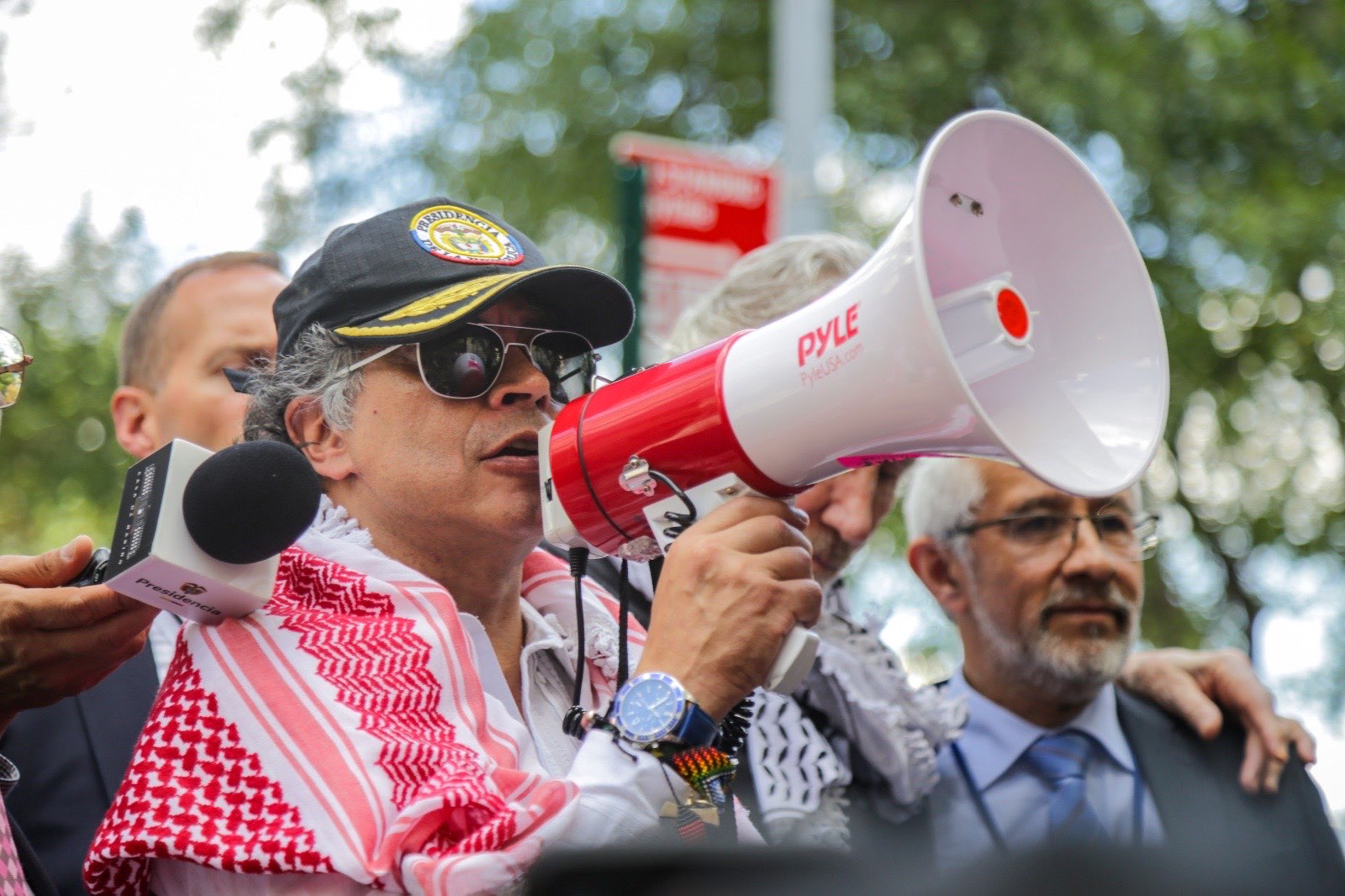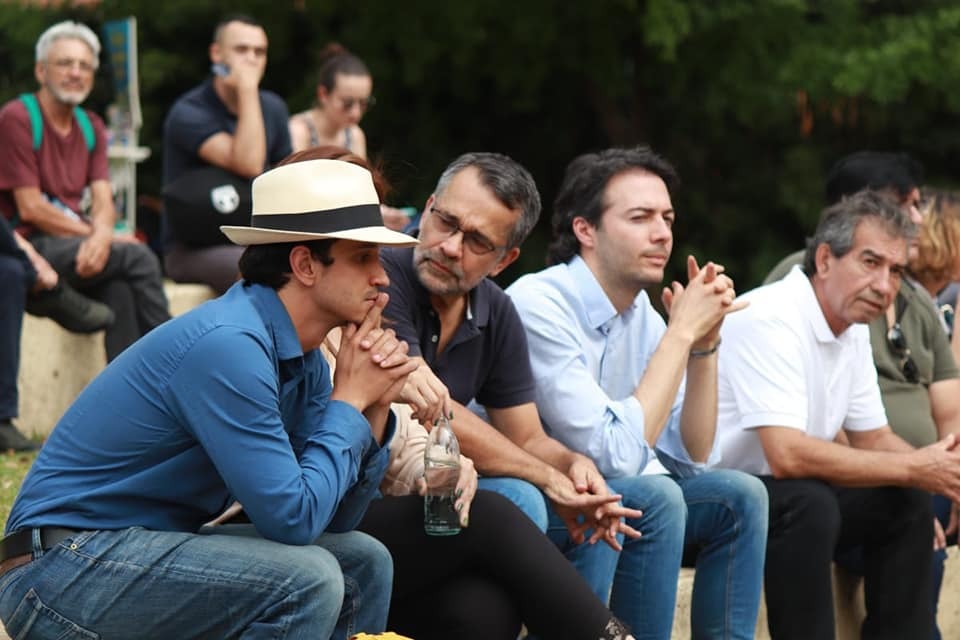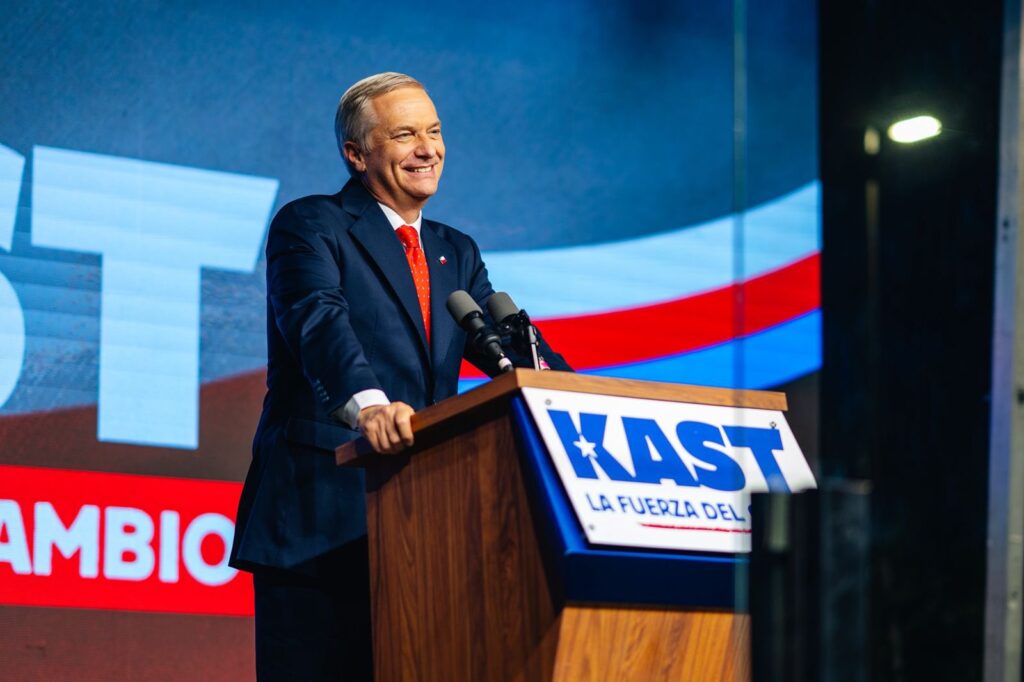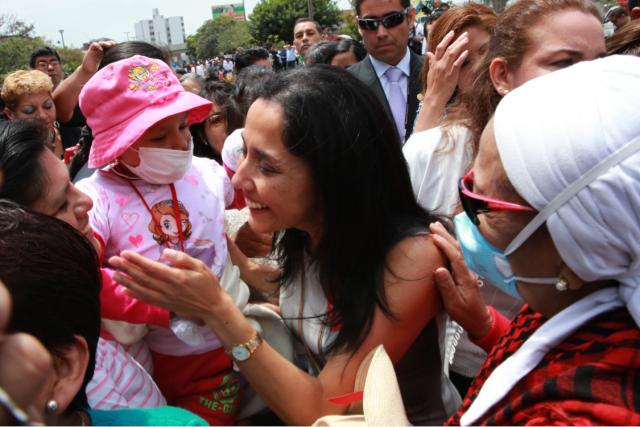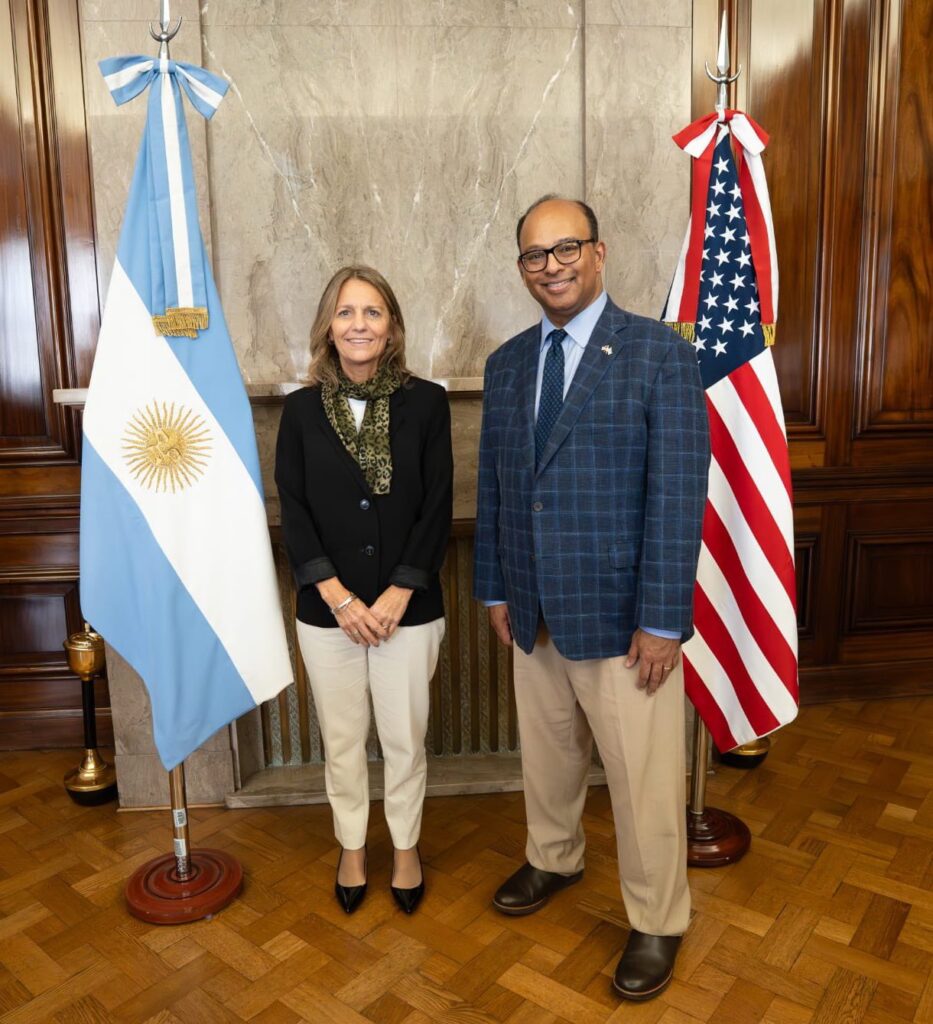Bogotá, Colombia – Senior officials in Washington and Bogotá have been engaged in a war of words following the U.S. State Department’s decision to revoke President Gustavo Petro’s visa last Friday.
Multiple Petro loyalists have renounced their U.S. visas while the State Department has revoked travel authorizations and mocked top officials for their gestures of solidarity.
The spat is just the latest in a wave of diplomatic confrontations this year between the Petro and Trump administrations, which have clashed on a range of issues including drug control, deportation flights, and the genocide in Gaza.
The U.S. State Department announced on Friday night in a post on X that Petro’s visa had been revoked: “Earlier today, Colombian president [Gustavo Petro] stood on a NYC street and urged U.S. soldiers to disobey orders and incite violence. We will revoke Petro’s visa due to his reckless and incendiary actions.”
The Colombian president had railed against the Trump administration in a speech to the United Nations General Assembly, condemning its support for the Israeli military and its campaign against drug boats in the Caribbean. He later attended a pro-Palestine protest in New York City and called on U.S. troops to “disobey Trump’s orders.”
The State Department also canceled visas for several Colombian government officials, including the Ministers for Equality and for Mines and Energy.
In response to his visa being revoked, Petro said he does not need a visa and can get an Electronic System for Travel Authorization (ESTA) due to his Italian dual nationality.
But the president later criticized U.S. authorities, writing that “revoking the visa is not an act against Petro, but against the United Nations and against the fight for the survival of humanity.”
He was backed by several senior officials, including Foreign Minister Yolanda Villavicencio who announced yesterday she would renounce her visa in solidarity with Petro.
Daniel Quintero, a progressive presidential hopeful and former Mayor of Medellín, also backed Petro, saying “today more than ever I am proud of our president” and volunteered to forfeit his visa.
But the public acts of solidarity appear to have had little effect in Washington, which has responded mockingly to the wave of visa forfeitures.
Quintero was met with a wry response from Deputy Secretary of State Christopher Landau, who replied to his announcement by writing “¡A la Orden!”, Spanish for ‘at your service.’
Landau also clashed with Colombian Interior Minister Armando Benedetti, who said he would renounce his visa and called on loyal functionaries to follow suit.
“How can you ‘give up’ something you don’t have?,” responded Landau on X.
But beyond trading barbs on social media, the back and forth between Washington and Bogotá may have far-reaching implications for diplomatic relations, according to analysts.
Sergio Guzmán, Director at Colombia Risk Analysis, argued Colombian officials are dealing unnecessary damage to diplomatic ties at an already fractious time for bilateral relations.
“[This] puts Colombia on a poor footing for its very ambitious multilateral agenda, all to serve the capricious desire of President Petro,” said the analyst.
He added that the acts of solidarity signal further confrontations to come, as Petro will remain unchallenged in carrying out an increasingly personalist foreign policy.
“We can expect… a much more capricious foreign policy from now on because it seems that Petro has eliminated any speck of dissent from any cabinet official,” said Guzmán.
Featured image description: Gustavo Petro addresses a pro-Palestine protest in New York.
Featured image credit: @PetroGustavo via X


